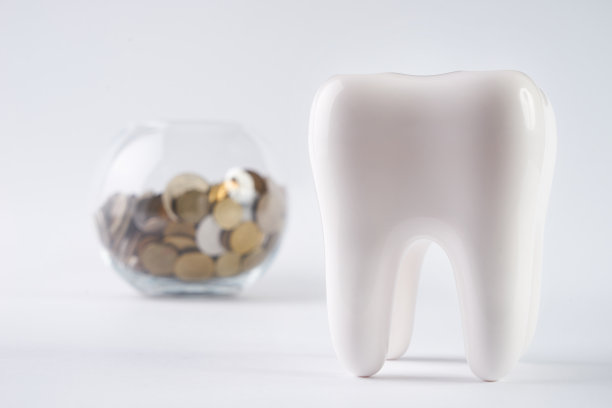Summary: Dental fillings are a common procedure to restore teeth damaged by decay or trauma. Ensuring the success and longevity of dental fillings involves understanding various essential precautions. This article discusses four critical areas: choosing the right dentist, understanding filling materials, adhering to pre-procedure recommendations, and executing proper aftercare. By following these guidelines, patients can improve the durability of their fillings and maintain optimal dental health.
1. Choosing the Right Dentist Matters

One of the most crucial factors in the success of a dental filling procedure is selecting an experienced and qualified dentist. A skilled dentist not only reduces the risks of complications but also ensures the procedure is carried out with precision. Research potential dentists by reading online reviews, seeking recommendations, and checking their credentials.
After narrowing down your options, consider scheduling an initial consultation. This meeting allows you to gauge the dentists approach to patient care and their comfort level with the specific procedure you require. Ask questions about their experience with dental fillings, including the types of materials they prefer to use.
Additionally, a well-equipped dental practice contributes significantly to the success of dental procedures. Ensure that the clinic employs modern technology and adheres to safety protocols, providing you with peace of mind during your filling procedure.
2. Understanding Dental Filling Materials
Dental fillings come in various materials, each with its own advantages and disadvantages. Comprehending these differences is essential for making informed decisions. Common materials include amalgam, composite resin, glass ionomer, and gold. Each material varies in durability, aesthetic appeal, and cost.
For example, amalgam fillings are known for their strength and longevity, making them suitable for back teeth. However, they are not aesthetically pleasing. On the other hand, composite resins blend with natural tooth color, ideal for front teeth, but may not last as long as amalgam. Discussing these options with your dentist helps tailor a treatment plan that aligns with your needs and preferences.
Moreover, new materials and advancements in dental technology continue to emerge, offering improved options. Stay updated and initiate conversations about the latest materials with your dentist to find the best solution for your specific dental requirements.
3. Following Pre-Procedure Recommendations
Preparing for your dental filling procedure is just as important as the procedure itself. Your dentist may provide specific pre-procedure instructions essential for a smooth experience. For instance, depending on the extent of the filling, you may be advised to avoid certain foods or beverages prior to your appointment.
If you experience anxiety regarding dental visits, informing your dentist beforehand is crucial. They may offer calming techniques or sedation options to enhance your comfort during the procedure. Properly understanding and following these pre-procedure recommendations significantly reduces the likelihood of complications.
Additionally, if you take any medications or have underlying health conditions, be transparent with your dental care provider. This information helps them tailor the procedure to your needs, ensuring a safer experience.
4. Executing Proper Aftercare Instructions
The aftercare following a dental filling is vital to its longevity. Your dentist will provide specific aftercare guidelines to follow post-procedure. For instance, they may recommend avoiding hard or sticky foods for a few days to allow the filling to settle properly.
Monitoring your symptoms is also essential after the procedure. If you experience increased pain or sensitivity, contact your dentist immediately. Such reactions can signal underlying issues that may need addressing or adjustments to your filling.
Maintaining excellent oral hygiene practices post-procedure is paramount. Regular brushing, flossing, and dental check-ups will help prolong the lifespan of your filling and preserve your overall oral health.
Summary:
The success and longevity of a dental filling procedure hinge on several essential precautions, including choosing an experienced dentist, understanding the materials, following pre-procedure guidelines, and executing proper aftercare. By actively participating in each step, patients can enhance their dental health and avoid potential complications.
This article is compiled by Vickong Dental and the content is for reference only.
Vickong Dental
Vickong Dental is a large medical group established in Hong Kong in 2008 by professors from well-known medical universities in Guangdong and Hong Kong, as well as medical doctors from key national '985' universities (including Master's supervisors and senior professors). The chain of branches brings together expert dentists with PhDs and Master's degrees from Hong Kong and Mainland China, committed to providing high-quality dental treatment.
"Vickong Dental Practices the University Motto of 'Healing and Serving Society,' with a Stable Operation for Sixteen Years. It Has Been honored with Hong Kong Enterprise Leaders's Choice,' and is a Global Trusted Implant Center for the Nobel Implant System. Recommended by Hong Kong Metro Broadcast and Guangdong Television, it Serves Customers from Over Thirty Countries and Regions, Gaining the Trust and Favor of Citizens from the Guangdong-Hong Kong-Macau Greater Bay Area and Surrounding Cities.

Thousands of customers' unanimous praise
The most recognized and highly recommended dental service by customers in the Guangdong-Hong Kong-Macau Greater Bay Area
We Ensure You Receive Detailed Care and Attention Here
Hong Kong standards, Shenzhen prices, Your Trusted English-speaking dentists

Vickong Dental Medical-Grade Instrument Disinfection Process
Vickong Dental Medical-Grade Instrument Disinfection Process

Vickong Dental Chain: A Warm and Comfortable Environment for Treatment






Appointment Hours

Q&A
Why choose Vickong Dental?
Vickong Dental practices the university motto 「Medicine to Benefit Society」, with each branch bringing together highly qualified dentists with doctoral and master’s degrees from Hong Kong and the Mainland, and has maintained seventeen years of steady operation。Recipient of 「2024 Hong Kong Enterprise Leaders Brand」, 「2025 Hong Kong Enterprise Leaders Brand」, a Nobel Biocare Global Trusted Implant Center, and a brand recommended by Metro Radio Hong Kong and Guangdong TV。
To date, we have served customers from more than thirty countries and regions,earning exceptionally high word-of-mouth recognition and trusted recommendations from residents across the Guangdong-Hong Kong-Macao Greater Bay Area and surrounding cities
We have eight major branches in Zhuhai、Shenzhen,and a consultation and service assurance center in Hong Kong,so you can book a free consultation at any time for any questions,which is very reassuring.
If I do not accept the quotation after the CT scan, will I be charged??
No! As long as the actual treatment has not started, you will not be charged any fees.
Will there be any additional charges during the treatment process?
No, there won’t be any additional charges. Before treatment begins, we will clearly explain the treatment plan and its corresponding fees. Only after the patient agrees and signs the consent form will we proceed with the dental service.
Can I pay in Hong Kong dollars?
Yes. Vickong Dental accepts payment in Hong Kong dollars. The amount will be converted based on the exchange rate of the day, and the applicable rate will be clearly communicated to you in advance.
Can I reschedule my appointment at any time?
Yes. Please contact us via **WeChat** or **WhatsApp** as early as possible, providing your original appointment time and details, along with your preferred new date and time slot for rescheduling.













